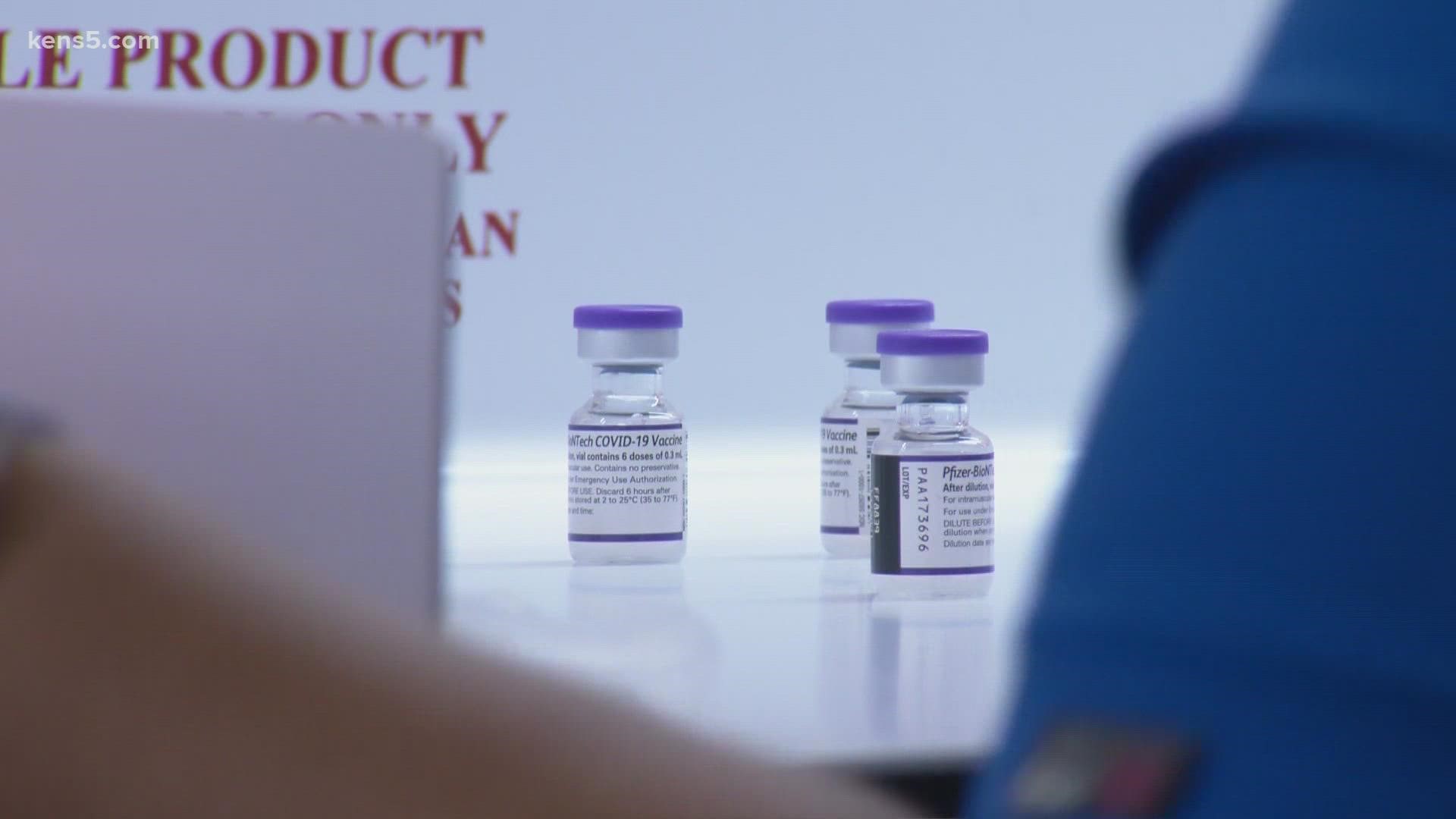SAN ANTONIO — The Centers for Disease Control Friday expanded booster shot eligibility to all adults, clearing the way for millions of Americans to take an additional dose ahead of the winter holidays.
“Booster shots have demonstrated the ability to safely increase people’s protection against infection and severe outcomes and are an important public health tool to strengthen our defenses against the virus," CDC Director Dr. Rochelle Walensky said in a statement.
Dr. Jan Patterson, an infectious disease specialist at UT Health San Antonio, says the move should make Christmas gatherings even safer.
"Especially if you have a vulnerable family member who has a compromised immune system, you want to make sure that you have the best protection for yourself," she said. "That provides the best protection for that family member."
Doctors hope booster shots will limit breakthrough infections, which are often mild or even asymptomatic.
Additional doses were previously available to people older than 65, people at-risk for severe infection because of other health problems, or people who work in places where the virus is likely to spread.
Last month, the CDC and Food and Drug Administration balked at expanding booster access to anyone, instead asking for more data about the vaccines' relationship with reported heart inflammation cases.
Vaccine-makers fulfilled that request Friday, presenting research indicating that myocarditis is even less common after the booster than it is after the second shot.
The vaccine is far less likely to cause the heart muscle to swell than a COVID-19 infection, which can also cause more severe inflammation. Vaccine-related myocarditis is rare.
People who take an additional shot sometimes experience some fatigue, chills, or arm soreness. Anecdotally, Patterson says booster-takers experience similar or milder side effects than they experienced after their initial sequence.
"I think that should be reassuring to people," she said.
Dr. Bryan Alsip, chief medical officer at University Health, says it's logical to expect milder side effects with the booster.
"They're probably less severe... in the sense that your body has already adapted to the immunity and been exposed to the vaccine," he said.
It is not yet clear if vaccinated people will need a booster every six months.
"With a booster like this, we generally get longer-term immunity," Patterson said. "Whether we'll have to get another one in six months, I don't know. But I think probably not."
Patterson, who has taken a booster, said she will continue to wear her mask in crowded, indoor spaces like the grocery store.
There is not ample data for the CDC to issue clear booster guidance for fully-vaccinated people who experienced a breakthrough infection. Patterson recommends patients who've been recently infected wait two or three months after their infection to get a booster shot.
Each doctor said it is most important for unvaccinated people to take the shot as soon as possible. Fully-vaccinated people should seek boosters according to their own risk, or the risk of the people around them.
"It's probably more important if you're 65 or older, and/or if you have some severe underlying medical conditions that make you more prone to not only getting COVID-19, but severe outcomes related to that," Alsip said.
University Health may consider expanding vaccine clinic hours to meet increased demand, Alsip said. Metro Health said it has no plans, for now, to change its pop-up clinic times or add hours at the Alamodome.
Almost 200,000 Bexar county residents have already taken an additional dose.

